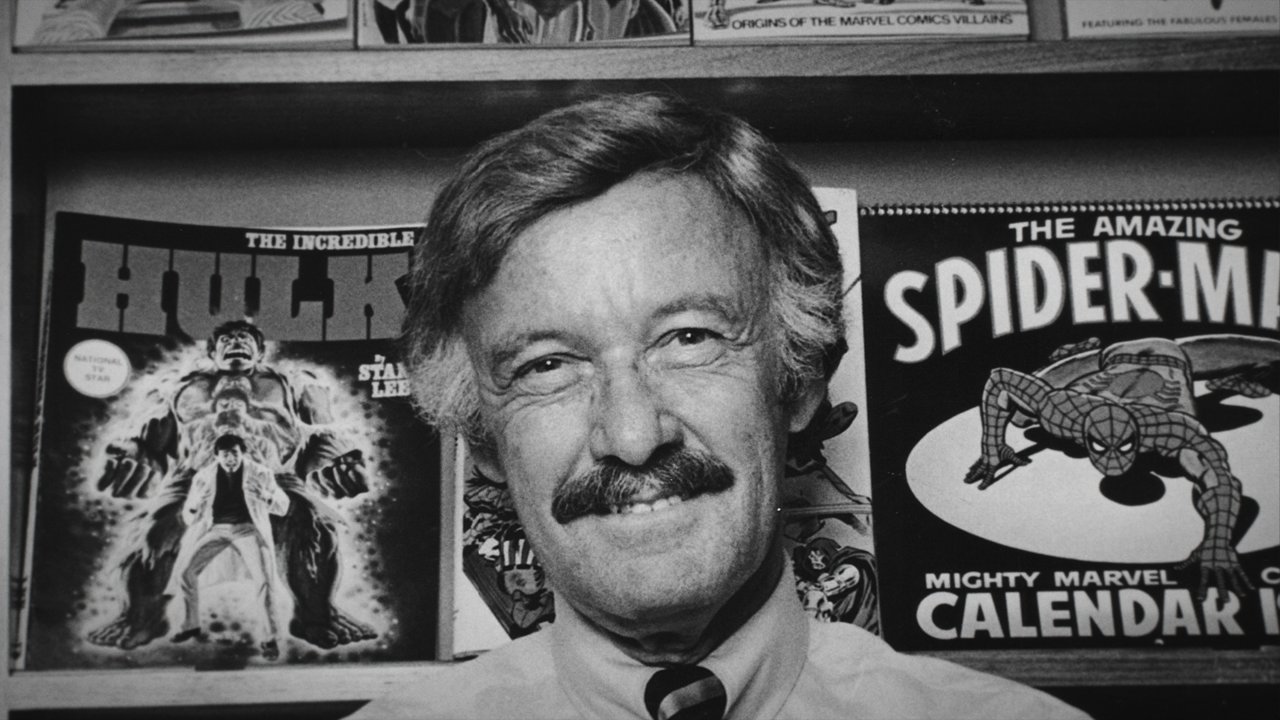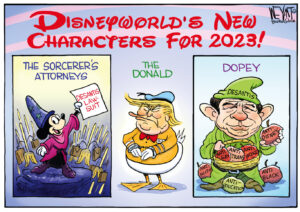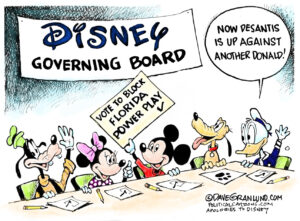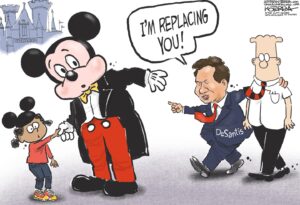Stan Lee: Disney’s Newest Mascot
A new documentary presents a cartoon version of the Marvel Comics storyteller's life. Stan Lee. (Photo: Elfe Cimicata/Tribeca Festival Press Office)
Stan Lee. (Photo: Elfe Cimicata/Tribeca Festival Press Office)
For a movie titled “Stan Lee,” Disney’s documentary about the legendary comics figure is hyper-focused on six years during the early to mid-1960s. These were the years of Marvel Comics’ magic run, when Lee — in his early 40s, but already editor-in-chief for more than 15 years — co-created Spider-Man, Black Panther, the Fantastic Four, the X-Men and The Avengers. These characters are now owned by Disney, though their original authorship and credit-sharing is a matter of some dispute.
The first full doc about Lee’s life has little interest in these controversies, or indeed much of anything beyond the creative boom that birthed some of the company’s most valuable IP. Considering that Lee died in 2018 at age 95, this is a bit odd, but not surprising. As the custodian of Lee’s major creations, Disney is concerned above all with keeping the Marvel universe free of further controversy in the wake of multiple assault accusations leveled at prominent Marvel actors. The result is a work of rote and gaudy self-promotion that fails to be effective or interesting even on its own terms.
The film’s framing of Lee as a victim of rights thefts, and not a perpetrator, is as sloppy as it is disingenuous.
In presenting the inspiring story of how a humble writer became the quintessential comic book storyteller, director David Gelb studiously fast forwards through Lee’s formative years and later icon period with equal velocity. The film rattles off Wiki-trivia about Lee’s youth, his marriage and his early career, but gestures only weakly in the direction of Lee’s history of alleged credit-stealing. (A history most thoroughly recounted in Abraham Josephine Reisman’s ”True Believer: The Rise and Fall of Stan Lee.”)
Indeed, Disney’s doc plays like an act of damage control, reframing legal disputes as friendly ideological disagreements without significant ramifications or fallout for Lee, his colleagues or the industry. The film’s framing of Lee as a victim of rights thefts, and not a perpetrator, is as sloppy as it is disingenuous. The film asserts Lee’s victimhood in passing, like a fact already known, without attempting to present evidence or even a basic timeline. The rest of the film is no better, speeding through anything resembling narrative or emotion. Given that the result is to rewrite history, this hasty approach is particularly insidious.
“Stan Lee”’s elisions not only reduce the role of other Marvel collaborators, they do Lee a disservice. The film’s airbrushing leaves a didactic and dimensionless rags-to-riches saga that suggests the blueprint for a schmaltzy biopic like the studio’s sanded down, self-aggrandizing film about Walt Disney’s relationship with “Mary Poppins” creator P.L. Travers, “Saving Mr. Banks.” In some ways, it is an apt testament to the famously self-mythologizing Lee, who during his long life was known for retelling and refining the Spider-Man creation story. “I’ve told this story so many times, it might even be true,” he often joked.
The film is not completely bereft of whimsical aesthetic charm. Moments from Lee’s youth and his professional life are restaged with expressive miniature figurines, with Lee’s own narration providing connective tissue. Unfortunately, Gelb pulls his voice clips from various TV interviews across the decades — Lee’s signature New York rasp hardly changed in tenor during the latter half of his life — resulting in thoughts and recollections that feel cobbled together because they are. The result is a long and complex life collapsed into a misleading whole, constructed by checklist, with precious little space to account for how Lee changed over the course of his personal and professional relationships.
Lee famously injected progressive racial politics into his fantasies when few other comic publishers would.
Born in 1922, Lee saw most of the 20th-century, whose decades are marked in the film by flashing images of pop culture landmarks and major wars. During the decade that the film is most concerned with, the 1960s, Lee famously injected progressive racial politics into his fantasies when few other comic publishers would. But highlighting this noble feature of his career should not preclude an honest discussion of his shortcomings when it came to creator rights and credit-sharing, issues that continue to plague the American comic industry and its Hollywood adaptations.
The two most prominent Marvel names that appeared alongside Lee’s during his creative peak were the artists Steve Ditko and Jack Kirby. The former co-created Spider-Man and Doctor Strange; the latter breathed life into practically every other Lee creation. Both artists feature only lightly in the film, with Ditko’s miniature appearing with his back to the camera, an unintentional echo of Ditko’s death in 2018 in relative obscurity. That was also the year of Lee’s death — the much richer and more famous public face of Disney’s Marvel Cinematic Universe. At the time of their passing, Ditko’s estate was said to be worth $1.3 million, a meager figure for a retiree whose creations had become dominant fixtures of popular culture. Ditko’s lawyer claims even this figure is a gross overestimation, and that he was behind on rent when he died. Upon the movie’s Tribeca Festival premiere, Kirby’s son released a statement lambasting the film for its dishonesty. The public letter includes a line from Albert Einstein, who said, “More the knowledge, lesser the ego. Lesser the knowledge, more the ego.”
Your support is crucial…With an uncertain future and a new administration casting doubt on press freedoms, the danger is clear: The truth is at risk.
Now is the time to give. Your tax-deductible support allows us to dig deeper, delivering fearless investigative reporting and analysis that exposes what’s really happening — without compromise.
Stand with our courageous journalists. Donate today to protect a free press, uphold democracy and unearth untold stories.






You need to be a supporter to comment.
There are currently no responses to this article.
Be the first to respond.